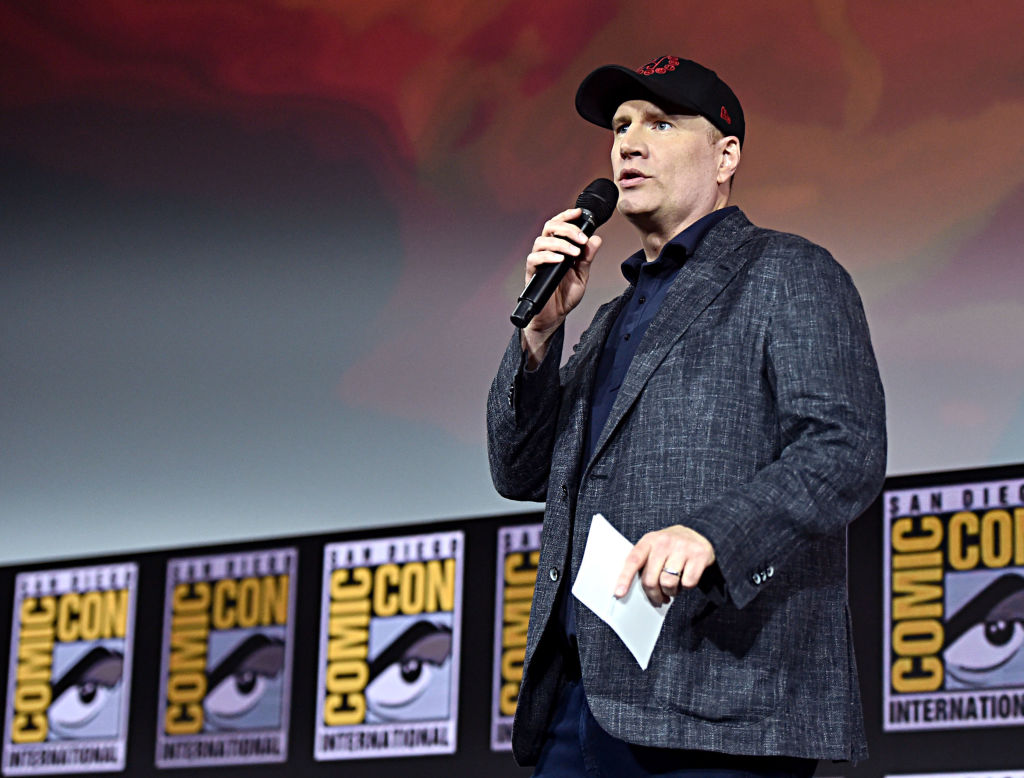How Does Marvel Studios Decide Which Movies to Make? Kevin Feige Finally Explains
Looking back on cinema history, the emergence of the Marvel Cinematic Universe will be considered a turning point for the industry. Love them or hate them, Marvel Studios films have transformed the nature of blockbuster storytelling. Suddenly, every studio was dying to get its hands on an interconnected shared universe of its own.
Yet, despite Universal’s ill-fated Dark Universe or Warner Bros.’ unsteady MonsterVerse, the MCU continues to thrive. Eleven years in, Avengers: Endgame became not only the biggest MCU hit to date but the highest-grossing domestic release ever. But with such a roster of characters to draw from, how does Marvel decide who to bring into the MCU though?

The ground-breaking ambition of the Marvel Cinematic Universe
In the MCU’s early days, that rationale was pretty clear. Marvel had sold off the rights to its most popular characters. So Spider-Man, the X-Men, and the Fantastic Four — among others — were off the table. So instead, Marvel Studios set its sights on The Avengers.
Long before Robert Downey Jr. became Tony Stark, an Iron Man movie was in development. And that now-famous post-credits scene teased the possibility of something more. With the characters they had left, Marvel formed began to develop films for Hulk, Thor, and Captain America. Of course, that finely threaded needle gave birth to a phenomenon in 2012.
From that point on, Marvel Studios began to take chances. Phase 2 of the MCU mixed more obscure titles like Guardians of the Galaxy and Ant-Man in with sequels to established hits. And that approach ultimately grew to include characters like Doctor Strange, Black Panther, and Captain Marvel. Marvel even struck a deal to bring Spider-Man into the MCU.
Kevin Feige sheds a light behind the scenes of the MCU
With seemingly limitless audience goodwill to draw from, Marvel Studios could apparently do no wrong. Audiences were willing to accept a talking tree and a hero who aligned himself with insects. So what criteria then would Marvel use to decide which projects to produce next?
In a recent Q&A at the New York Film Academy, Marvel Studios head Kevin Feige addressed exactly that. While he said the decision-making process “can vary,” Feige did reveal the big-picture thinking involved behind the scenes.
“Sometimes you’re choosing the title hero, you’re choosing which main character or main team you want to bring to the screen,” he said. “And oftentimes, as you’re making and developing the movie, [asking], ‘Who will come into it? Who will fit into it?'”
Fans shouldn’t be surprised to discover Marvel Studios takes such a building block approach to the MCU. After all, the films’ ability to effortlessly feed one story into another has long been their strong suit. This convergence of plot threads is, of course, what made Avengers: Infinity War and Avengers: Endgame so satisfying for audiences.
Here’s who Marvel Studios is bringing to us next
Now an entire era of the MCU has been closed off. So in many ways, the future can be a blank slate. Heroes like Captain Marvel, Black Panther, and Doctor Strange will no doubt graduate into lead roles. But Marvel is maintaining a focus on fresh blood as well.
The next few years will see the cosmic Eternals join the franchise as well as the long-awaited Black Widow prequel. Marvel will also introduce characters like Moon Knight, Ms. Marvel, and She-Hulk on Disney+. Then, of course, we have 2021’s Shang-Chi and the Legend of the Ten Rings, a film Feige said has been in the queue for a while.
“We’ve wanted to make [Shang-Chi] for a long time. We want to make a movie with a 98 percent Asian cast.” he told the New York Film Academy. “And then you talk about, as you develop the movie, what other heroes can you bring into it, if you need them? And in the case of Black Panther [in Captain America: Civil War], it was the greatest thing that ever happened.”
We already know Shang-Chi will (re-)introduce audiences to the Mandarin. But Feige’s comments indicate the film could also mark the big-screen debut of some surprising Marvel characters too. Given the MCU’s history of slipping in surprises, we wouldn’t expect anything less.


